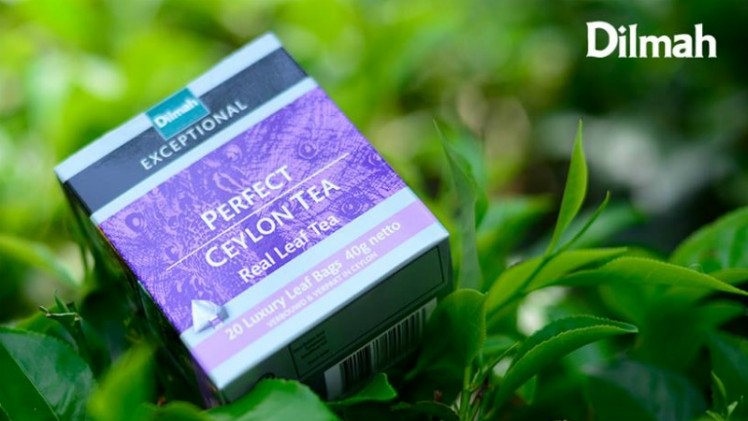‘Paradigm shift’: How Sri Lanka’s Dilmah Tea’s premium positioning created a global success story – CEO exclusive

Instead, he pledged the firm would continue to focus on premiumisation, high quality and innovation.
For the latter, he said Dilmah was looking at multiple types of new product development, for example its Dilmah Elixir of Ceylon Tea which is essentially a bottle of premium tea extract that can be used for multiple purposes.
“Our Elixir is made from hand-picked tea leaves that are converted to extract within 24 hours of their picking – it’s the closest to nature that your tea can get,” Fernando told FoodNavigator-Asia.
“Because of its authenticity, it can be used to make high quality iced tea or even as an ingredient option for bartenders to make tea-related cocktails.
“It is not a high-sugar syrup in any way – there is only 4.5% of sugar content, and we use mostly stevia and honey to flavour it.”
Such ambitions are a far cry from the firm’s humble beginnings.
Dilmah Tea was established by Fernando’s father Merrill J. Fernando in 1988 based on the three core principles of taste, health and purpose. Its introduction launched what Fernando has deemed a ‘paradigm shift’ for the tea industry in Sri Lanka against the odds.
“Dilmah introduced a fundamentally new business model, causing a paradigm shift in the country’s tea industry. Whether in tea, coffee or cocoa, at that time, there were no producers or growers in the [crops’] producing country offering these products internationally. It was all controlled by large global businesses – a colonial economic model,” Fernando said.
“All the way from my father’s conception of this tea dream in the 1940s-50s when Sri Lanka gained our independence until the 1980s when he first started making this a reality, Sri Lanka had always been just a raw material producer for tea.
“Back then, this was being exported to places like London, and the problem here was that with the export of tea, we were also exporting the rewards and fair returns [from this trade]. Our industry was being exploited, and there was no possibility for innovation.
“His chances of success with the company were dim given his lower-middle class background and the tea industry being controlled by foreigners back then, but a combination of sheer determination, [commitment] and purpose helped him to push past these odds.”
Dilmah places a lot of emphasis on its philosophy and purpose of contributing back to the Sri Lankan community – according to Fernando, this can be seen in its charitable MJF Foundation, to which often 18% to 20% of the firm’s pre-tax earnings are donated yearly.
“Dilmah was formed around human service, and it is our philosophy. Most other companies today acquire their purpose gradually or via marketing or consumer demand – not us. This is why we even exist today,” said Fernando.
Challenges
He added that Dilmah’s presence in the Asia Pacific region had reached just about every country, though so far it been a ‘premium’ one. This means that Dilmah Tea is mostly found in specialty retail and luxury hospitality, especially in Indonesia, Australia, Thailand, Singapore and Malaysia.
“We were mostly focused on the export market previously, so in our home market of Sri Lanka, we have actually only really entered the market in the last 15 years or so. This is because here, tea is extremely commonly consumed, so the premium tea market is very niche,” he explained.
One of the major reasons for the company’s focus on the premium market is due to the rise of the ‘discount culture’ in the tea industry, which has made things difficult for high quality tea producers.
“The discount culture has made it impossible for us to maintain quality and simultaneously compete in many retail environments,” said Fernando.
“Whenever there is an emphasis on quality, we can survive and offer Dilmah in retail, but otherwise [we] will not compromise into things like multi-origin tea [or on quality]. Purity of origin is very important to us.”
Ceylon tea is on average the most expensive tea in the world, so it is common for tea brands to blend in teas from multiple origins to make their products more affordable.
“Another major challenge we face is that the customer often says ‘cheaper’ – this perception is really an absence of knowledge of tea, and we are looking to further educate consumers so they can better understand tea,” said Fernando.
“The tea industry is not one that can work based on cost reduction – every less cent spent on tea means another sacrifice in terms of its quality.”
Benefits of tea
In terms of health benefits, Fernando stressed that tea covered the entire spectrum of looking after health, stress and sickness.
“Tea is rich in antioxidants with a very specific and unique benefit for human health – there are over 20,000 research papers [that can attest to this] available online,” he said.
“The research shows that there is no herb that can quite compare to tea in terms of the health benefits for things like cancer, heart disease, stress, osteoporosis, dementia prevention and so on. It really is a very potent herb,” he said.
Describing what really ‘good tea’ is supposed to be, Fernando added that it was important to note that this would be a combination of multiple elements.
“You will need to use good water, the right brewing technique (e.g. three minutes and the occasional stir for black tea), ensure that the tea has good aroma, and then comes good clarity and taste,” he said.
“Basically, a good cup of tea will satisfy multiple senses: clarity for sight, aroma for smell, and finally, taste for the palate.”
Looking ahead
Fernando also predicts good things ahead for the tea industry, and that it will do ‘extremely well’ moving forward.
“The popularity of coffee is on the rise, and this is not competition for tea – these will complement each other, as consumers tend to drink these at different times of the day,” he said.
“The market is moving towards premiumisation, and the quality producers in particular will do well, so I believe that we are on robust footing.”

















